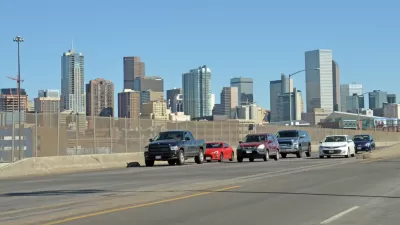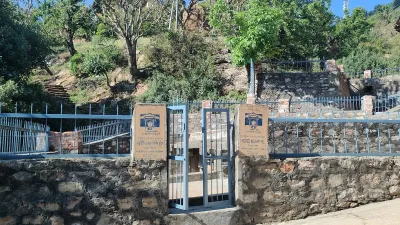A new book details the primitive origins of the GPS tracking technologies that are so pervasive in today’s mobile-phone-enabled world.
Brett Brownell shares news of a new book by Boston Globe technology writer Hiawatha Bray called You Are Here: From the Compass to GPS, the History and Future of How We Find Ourselves.
Brownell calls You Are Here “an entertaining, detailed history of how we evolved from primitive navigation tools to our current state of instant digital mapping—and, of course, governments' subsequent ability to track us.” Here are a few examples:
- “1st century: The Chinese begin writing about mysterious ladles made of lodestone. The ladle handles always point south when used during future-telling rituals. In the following centuries, lodestone's magnetic abilities lead to the development of the first compasses.”
- “2nd century: Ptolemy's Geography is published and sets the standard for maps that use latitude and longitude.”
- “1958: Approximately six months after the Soviets launched Sputnik, Frank McLure, the research director at Johns Hopkins Applied Physics Laboratory, calls physicists William Guier and George Weiffenbach into his office. Guier and Weiffenbach used radio receivers to listen to Sputnik's consistent electronic beeping and calculate the Soviet satellite's location; McLure wants to know if the process could work in reverse, allowing a satellite to location their position on earth. The foundation for GPS tracking is born.”
FULL STORY: The 2,000-Year History of GPS Tracking

Maui's Vacation Rental Debate Turns Ugly
Verbal attacks, misinformation campaigns and fistfights plague a high-stakes debate to convert thousands of vacation rentals into long-term housing.

Planetizen Federal Action Tracker
A weekly monitor of how Trump’s orders and actions are impacting planners and planning in America.

San Francisco Suspends Traffic Calming Amidst Record Deaths
Citing “a challenging fiscal landscape,” the city will cease the program on the heels of 42 traffic deaths, including 24 pedestrians.

Opinion: What San Francisco’s Proposed ‘Family Zoning’ Could Really Mean
Mayor Lurie is using ‘family zoning’ to encourage denser development and upzoning — but could the concept actually foster community and more human-scale public spaces?

Jacksonville Launches First Autonomous Transit Shuttle in US
A fleet of 14 fully autonomous vehicles will serve a 3.5-mile downtown Jacksonville route with 12 stops.

‘Big, Beautiful Bill’ Guts EV Tax Credits
The bill eliminates federal subsidies for electric vehicle buyers and charging stations.
Urban Design for Planners 1: Software Tools
This six-course series explores essential urban design concepts using open source software and equips planners with the tools they need to participate fully in the urban design process.
Planning for Universal Design
Learn the tools for implementing Universal Design in planning regulations.
Gallatin County Department of Planning & Community Development
Heyer Gruel & Associates PA
JM Goldson LLC
City of Camden Redevelopment Agency
City of Astoria
Transportation Research & Education Center (TREC) at Portland State University
Jefferson Parish Government
Camden Redevelopment Agency
City of Claremont





























